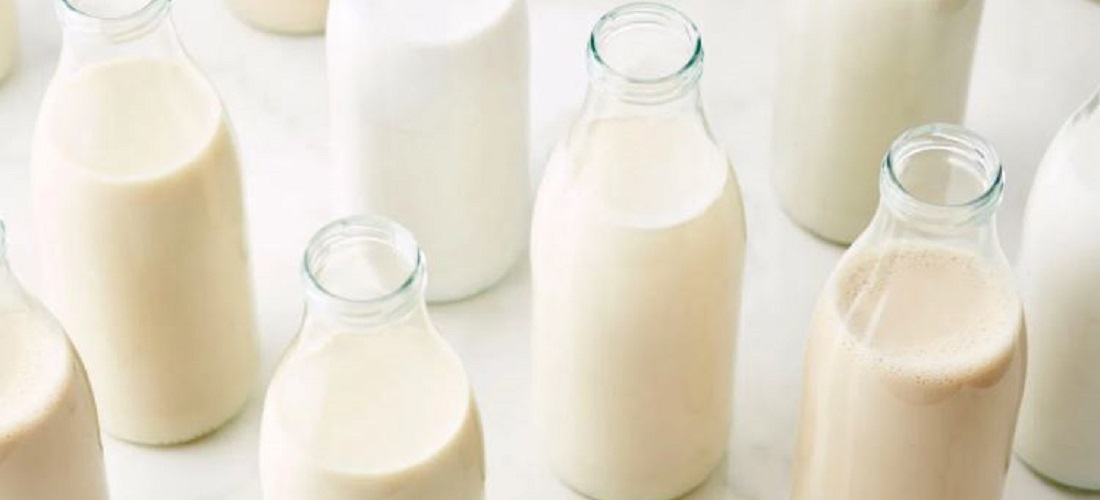
Argentina’s Milk Exports Surge, Yet Lingering Apprehension Persists
Apr, 08, 2024 Posted by Gabriel MalheirosWeek 202415
In the first two months of the year, while the increase in dollar value was marginal at just 1%, Argentina’s milk exports surged by 11% in tons and 17% in liters. Specifically, during January and February 2024, the country exported 70,036 tons and 492.6 million liters of milk equivalent.
These figures stem from a report compiled by the Ministry of Agriculture, which underscored that the sector’s contribution amounted to $251 million. It’s essential to note that, conversely, there was a significant downturn in dairy farm production, plummeting by over 15% during the same period. Particularly in February compared to the corresponding month in 2023, it nosedived by 17.8%. This downward trend may exacerbate further this month.
Sebastián Alconada, the National Dairy Director, commended the current government’s policy of upholding the previous administration’s 0% tax rate—valid until June 30—which, coupled with the currency exchange adjustments, kickstarted exports into a “profitable venture.”
“The export volume didn’t surge due to seasonal fluctuations, resulting in reduced supply, causing a bit of hindrance,” he explained.
José Quintana, a dairy sector consultant, recalled that despite “a remarkable drop in last February’s output, there was a substantial increase in export volumes in equivalent liters.” “We’re exporting 30% of the milk output, which is commendable. This was made feasible primarily due to the elimination of withholding taxes and subsequent currency devaluation; the official dollar rate has since undergone a complete transformation. This shift has been advantageous and has buoyed the industry, given the sluggish domestic market. Despite economic woes and a drastic demand slump, failure to curb supply would have precipitated a domestic market price collapse,” he elaborated.
In this vein, he stressed that robust export growth has underpinned stable domestic prices. “If we hadn’t been exporting at the current rate, domestic prices would likely struggle to keep pace, and adjusting milk prices would have been untenable, exacerbating production declines. Hence, I welcome the ability to export our entire output,” he emphasized.
Prudently, Pablo Villano, President of the Association of Small and Medium Dairy Companies (Apymel), expressed optimism regarding production, anticipating a rebound from May onwards with the advent of pastures, reserves, and silos. However, he observed that in a domestic market with diminished purchasing power, sales are sluggish, and “foreign goods are flooding in.”
“At present, imported products are priced similarly or slightly higher. However, with inflation and escalating costs, likely, we’ll soon surpass foreign prices, presenting a challenge,” he remarked.
He noted a downward trend in international export prices, with dairy giant Fonterra issuing two quotations with declining values.
Amidst this backdrop, he elucidated that without addressing internal cost issues, exporters are already lobbying for an exchange rate adjustment, given the current stability, to enhance competitiveness abroad.
“For now, things are proceeding smoothly; one must remain competitive to align with international prices; it’s the international price that dictates terms, not the other way around. However, we’re grappling with the significant challenge of passing on cost increases to end products, including milk, which has seen consistent price hikes, alongside wages. With milk prices, exports, and the domestic market in flux, stability remains elusive,” he remarked.
Ercole Felippa, President of the Dairy Industry Center (CIL), anticipated reduced exports in 2024 compared to the previous year due to a substantial production decline, which, although expected to reverse in the latter half, won’t suffice to offset the downturn.
“This production decline will translate into diminished export volumes. The initial exchange rate advantage no longer holds as cost escalations have nullified its effect, and reinstating export taxes (DEX), particularly on powdered milk, which constitutes roughly 50% of Argentina’s exports, would render us uncompetitive,” he cautioned.
“The developments in the first two months of the year were circumstantial and likely won’t persist throughout the year. Much hinges on the DEX framework adopted. It’s worth recalling that refunds were scrapped, constituting the tax component of exported goods. Curiously, the dairy sector was the only one affected, which necessitates a review to ensure equitable refund mechanisms, lest we become exporters of taxes,” he added.
Regarding refunds, he explained, “It’s a policy, endorsed by the World Trade Organization, wherein a government reimburses exporters for the tax component of exported goods, a privilege previously extended to dairy products. When the 0% export tax was prolonged for six months, refunds were axed too.”
The export surge faces an impending challenge, with the suspension of withholdings set to expire at the end of June. “We hope there’s no contemplation of their reinstatement, as it would be disastrous for the sector. Withholding taxes, especially at the levels previously discussed, roughly cost six cents per liter or thereabouts, a colossal sum that would plunge us back into a crisis we’re just emerging from. Let’s hope history doesn’t repeat itself,” Quintana stressed. It’s worth noting that powdered milk incurred a 9% export tax, while cheese faced a 4.5% levy.
Echoing these sentiments, the Apymel executive underscored the significance of abolishing export tariffs, albeit expressing concerns over their potential resurgence. “We stress the importance of zero tax withholding in the sector,” he emphasized.
To allay concerns, Alconada assured that “reinstating taxes is not on the agenda.” “The omnibus law provided for the permanent abolition of tax withholdings in the sector. Hence, it’s not under consideration. The objective is to maintain the status quo and maximize exports while focusing on ramping up production,” he concluded.
Source: MilkPoint
Click here to be redirected to the original piece: https://www.milkpoint.com.br/noticias-e-mercado/giro-noticias/argentina-exportacoes-de-leite-decolaram-mas-ainda-ha-medo-236632/
-
Other Logistics
Dec, 12, 2024
0
VLI entra no mercado de DDGS com embarque de 45 mil toneladas no Complexo do Tubarão, em Vitória (ES)
-
Other Logistics
Mar, 18, 2022
0
Congress overturns veto to port industry’s tax benefit
-
Grains
Sep, 03, 2024
0
Climate Woes Cloud Prospects for Brazil’s Northern Arc Ports
-
Ports and Terminals
Jun, 25, 2024
0
PortosRio gains leadership in budget execution among public ports

